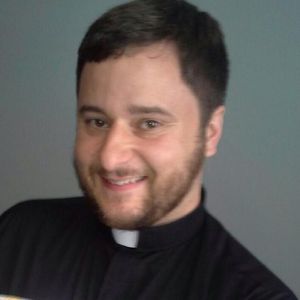As BuzzFeed recently demonstrated, a lot of Christians are ignorant as to what Hanukkah is. That’s a shame, not least of all because the story of Hanukkah is closely intertwined with Catholic history.
Here are two facts that you might not know about the Catholic connection to Hanukkah.
1) Without the Catholic Church, Hanukkah Wouldn’t be the Same
While Hanukkah is well-documented in 1 and 2 Maccabees, there’s very little about it in the Talmud and in the later traditions of rabbinical Judaism. In the words of Rabbi Hillel Hayyim Lavery-Yisraeli,
“Today Hanukkah is perhaps the best-known Jewish holiday throughout the world. However, despite its popularity, Hanukkah is the holiday with the least textual basis. The story of Hanukkah does not appear in the Tanakh. And while there is a Talmudic tractate named for the one-day festival of Purim (“Massekhet Megillah”), only a few pages of the Babylonian Talmud (B. Shabbat 21b-23a) are devoted to Hanukkah, including one small paragraph describing the historical event, and a few pages dealing with the laws of lighting Hanukkah candles.
“The Hanukkah tale in the Talmud only tells part of the story: only the miracle of the oil is mentioned. The story of the military victory, described in the siddur as the deliverance of “the many at the hands of the few”, is entirely left out. To complete our knowledge of Hanukkah we need to consult the Books of the Maccabees contained in the “Apocrypha,” a collection of books which have some similarities to the books of the Tanakh, but were not canonized by the Sages.”
But while 1 and 2 Maccabees were eventually excluded from the Jewish canon, they are included by Catholics and Orthodox. Professor Jon Levenson, professor of Jewish studies at Harvard Divinity School, points out the resulting irony:
“The Roman Catholic tradition honors these Jewish martyrs as saints, and the Eastern Orthodox Church still celebrates Aug. 1 as the Feast of the Holy Maccabees. By contrast, in the literature of the Rabbis of the first several centuries of the common era, the story lost its connection to the Maccabean uprising, instead becoming associated with later persecutions by the Romans, which the Rabbis experienced. If the change seems odd, recall that the compositions that first told of these events (the books of Maccabees) were not part of the scriptural canon of rabbinic Judaism. But they were canonical in the Church (and remain so in the Roman Catholic and Eastern Orthodox communions).
“And so we encounter another oddity of Hanukkah: Jews know the fuller history of the holiday because Christians preserved the books that the Jews themselves lost. In a further twist, Jews in the Middle Ages encountered the story of the martyred mother and her seven sons anew in Christian literature and once again placed it in the time of the Maccabees.”
So without the Scriptural basis in 1 and 2 Maccabees, the meaning of Hanukkah becomes obscured, and you end up with pages of laws about candle-lighting, without knowing why you’re lighting the candles in the first place.
2) Jesus Celebrated Hanukkah
Occasionally, you’ll hear Jesus’ words in John 10:35 thrown out to justify the claim that all of our beliefs should come from the 66-book Protestant Bible. For example, this website targeting Catholics claims:
“There is no source other than written Scripture alone to which the statement, “thy word is truth” can apply. That source alone, the Bible, is the believer’s standard of truth and authority. Therefore, all true believers trust in God alone and His Written Word alone. The Bible is the absolute source of all truth as the Lord also declared, “…the scripture cannot be broken” (John 10:35).”
It’s a delightful irony, because when Jesus spoke those words, He was celebrating Hanukkah.
As John tells us (John 10:22-23), “It was the feast of the Dedication at Jerusalem; it was winter, and Jesus was walking in the temple, in the portico of Solomon.” As we’ve seen, before Hanukkah became known as the Festival of Lights, it was known as the Feast of Dedication (1 Macc. 4:59). So there would be no question that this is the holiday being celebrated, even if John hadn’t added the clue that it was winter. And indeed, the NIV and other Protestant Bible translations acknowledge as much.
But if Jesus is celebrating Hanukkah, and the only textual support for it at the time is 1 and 2 Maccabees (since neither the Talmud nor Josephus’ writings exist yet), then either the two Books of Maccabees are Scripture, Jesus is okay with relying on extra-Scriptural traditions for truths about the faith (for example, about religious history and binding liturgical feasts), or both.
So just as Catholicism helps to reveal the truth about Hanukkah, we see Hanukkah (and Jesus’ celebration of it) revealing something of the truth about Catholicism.


